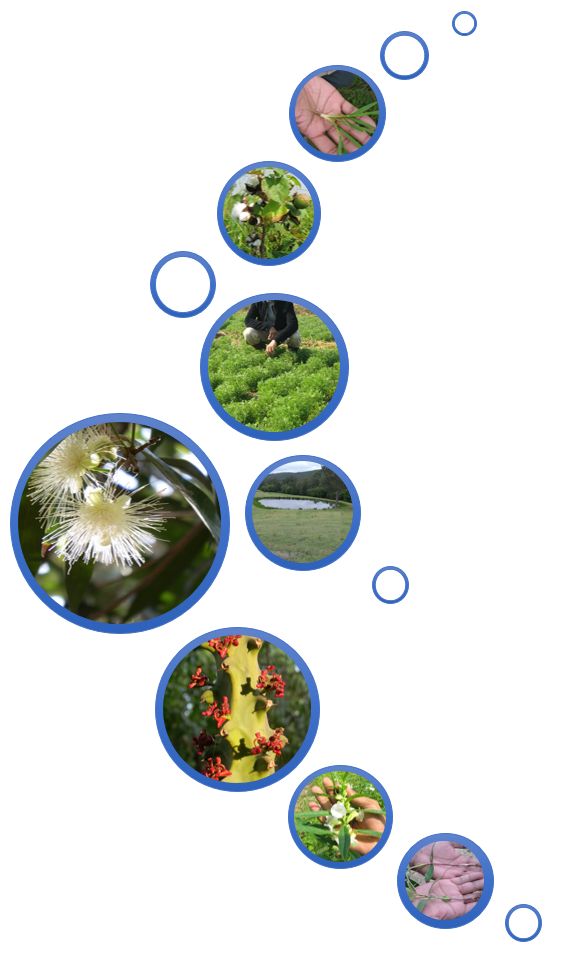PGCDS (Post Graduate Certificate in Dryland Studies) Program
While the following is the Tentative List of the courses that students will require to complete, there may be addition of new courses or removal of some of the courses based on feasibility of curriculum delivery.
List of Courses
The course focuses on functioning of dryland environments globally; ecosystem structure and processes linked to anthropogenic activities, desertification, and climate change. Dryland functioning is discussed through various biological levels: from plant adaptations to arid environments, through vegetation patterns; up to the physical environment and the interactions with its biological components. There is an emphasis on how human employ and apply ecological principals to increase productivity in drylands, starting at ancient times with run-off agriculture and traditional livestock grazing, up to date, with afforestation and modern agriculture. The course presents principles in the different fields of ecology and life-sciences; along with discussing relevant case-studies.
Through billions of years, microbial cell-to-cell and cell-to-surface interactions have evolved into a complex microbial entity, referred to as biofilm. A biofilm is defined as a sessile assemblage of complex microbial communities, which are permanently attached to a surface and held together within a matrix of predominantly self-produced, extracellular polymeric substances, EPS. The Mature biofilm complex was documented as microbial micro-colonies separated from each other by interstitial water channels. This unique porous architecture allows transport of nutrients, oxygen, genes, cell lysis and quorum sensing systems involving numerous types of signaling molecules. However, once established, biofilms are notoriously resistant to removal by different treatments, resulting in adverse effects at natural and engineered systems.
Water related challenges are raising concerns worldwide. These challenges are found at both ends of the pipe: the need to supply water in an adequate quality for human life and livelihood, and the need to prevent pollution from wastewater discharge. In this course, researchers from Ben Gurion University of the Negev and partners from leading academic institutes, Yale and Northwestern, will coherently discuss “burning” water issues and reveal current technologies that can alleviate water shortage globally. Pollution sources and remediation approaches of surface and subsurface water will be addressed as well as the approaches to wastewater treatment and safe reuse.
This course will provide the basic knowledge of plant cytogenetics and reproductive mechanisms in flowering plants; including cell cycle, cell division, mitosis, miosis and the genetic control of meiosis; chromosome structure and functions, and polyploidization, pollination strategies, pollen tube growth and guidance, mechanisms of male sterility and floral sex determination, hormones and reproduction self-incompatibility systems, fertilization, apomixis and parthenocarpic fruit development.
Carbon metabolism is a basic process essential for plants growth and survival. Carbon metabolism encompasses carbon assimilation through photosynthesis, consumption through respiration and photorespiration and allocation to different metabolic pools. The course will summarize most of these processes from the ecosystem to the biochemical levels with a focus on plant adaptation and acclimation to changing environments.
The course focuses on the developing scientific discipline of AgroEcology emphasizing research and case studies in drylands. Along with establishing the ecological scientific basis and background for agroecology framework, the course presents the principles and practices of agroecology that promote resilient and productive agricultural systems, interacting compatibly with the environment. Agroforestry and Silvopastoral Systems are presented and discussed within AgroEcology discipline and framework.
The aim of the course is to introduce the concepts and applications of geographical information systems and science (GIS), by focusing on the use of GIS for scientific inquiry. Case studies from various environmental research domains are used as demonstrations.
During this course students will be exposed to the physical processes governing the micrometeorology and microclimate of ecosystems, through understanding of the surface water and energy balances. The energy cycle, its role, and feedback processes via the water cycle, will be addressed. Atmospheric boundary layer dynamics and turbulent transfer, which play a primary role in feedbacks in the exchange of water and energy between land and near surface atmosphere, will be discussed.
As the demand to aquaculture products are rising while world fishers is in decline, aquaculture has been a fast growing industry in the last few decades and is yet to expand. In the present course practical aspects and theoretical background of major topics in fish culture, will be studies. Production of food and ornamental fish will be addressed. This is an introductory course that is geared for students with interest in aquaculture.
The course provides the detailed theoretical knowledge required for environmentalists and engineers to understand and protect water quality in surface water systems. Systems reviewed include streams, wetlands, riparian buffers, storm water ponds and small lakes. Emphasis will be given to the linkage between human activities, hydrology and water quality.
The course covers the interaction between the environment, practices in the field and genetics on the metabolism of fruits. The student will be introduced to fruit development, its regulation, metabolic processes related to it, plant central and secondary metabolic pathways in. relation to fruit quality.
The aim of the course is to describe the interaction between rainfall, soil and crop characteristics in dry areas in which runoff can be generated.

